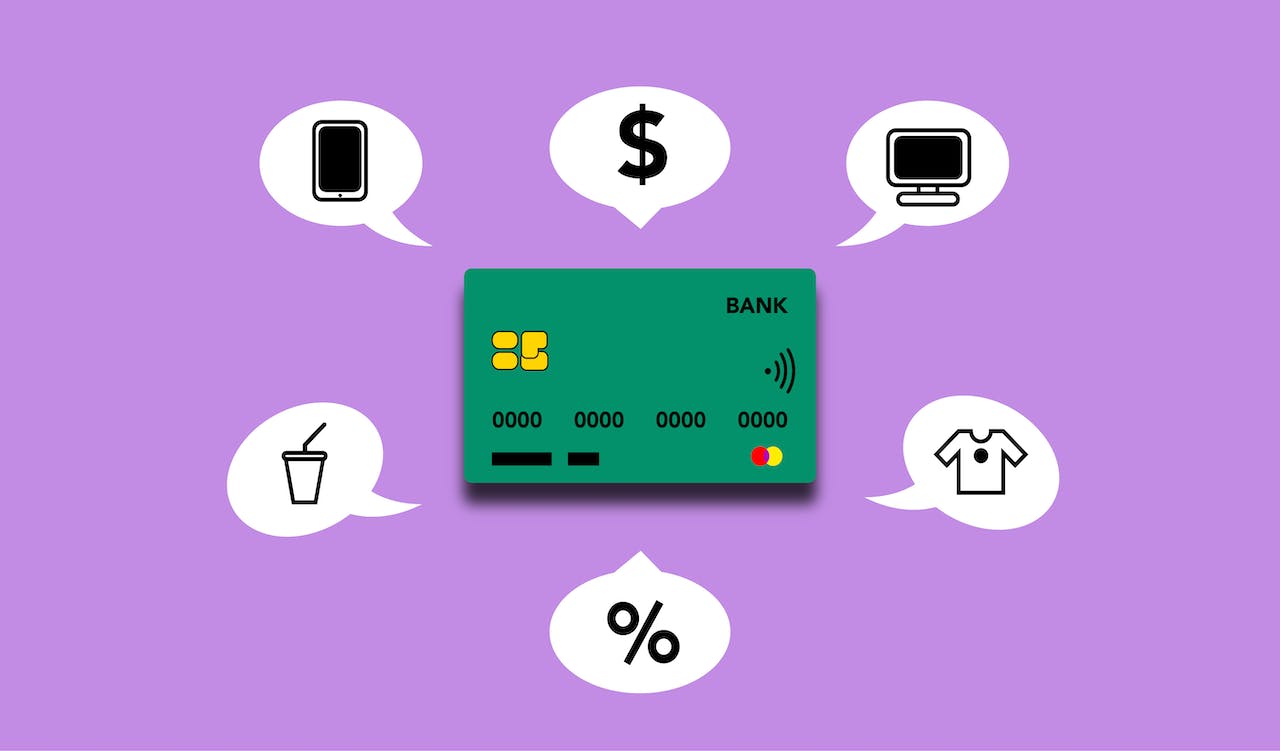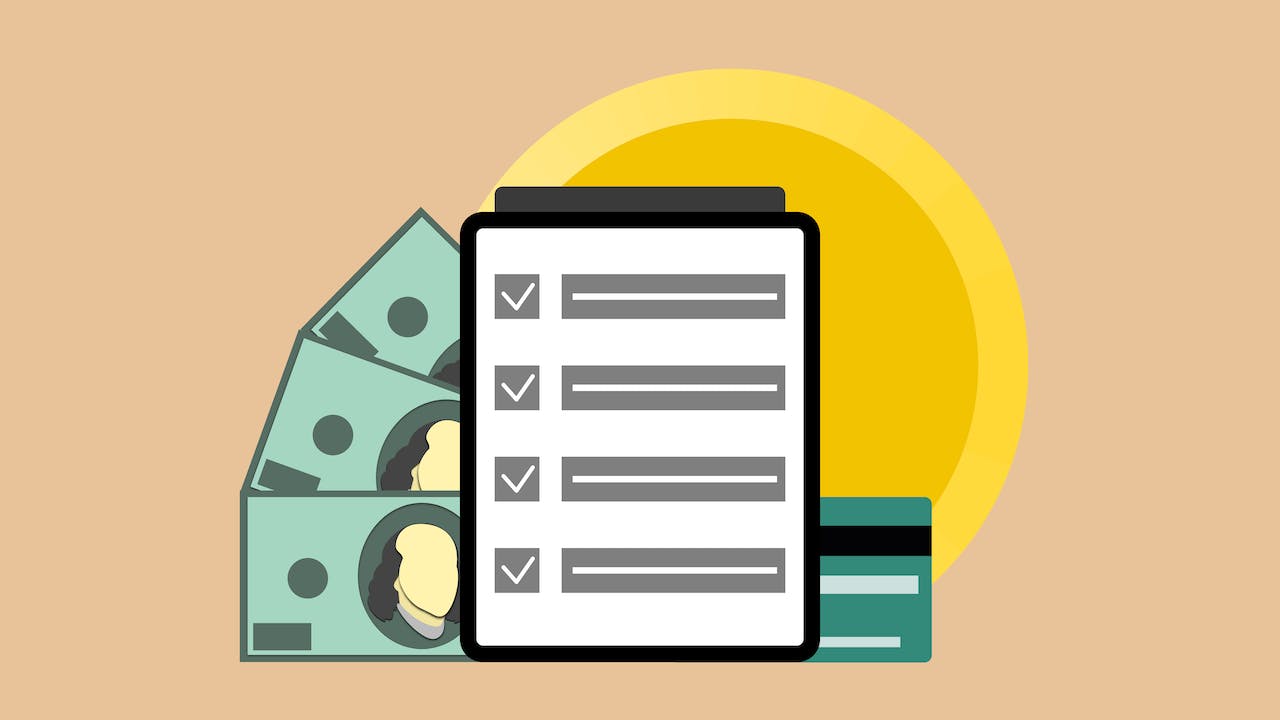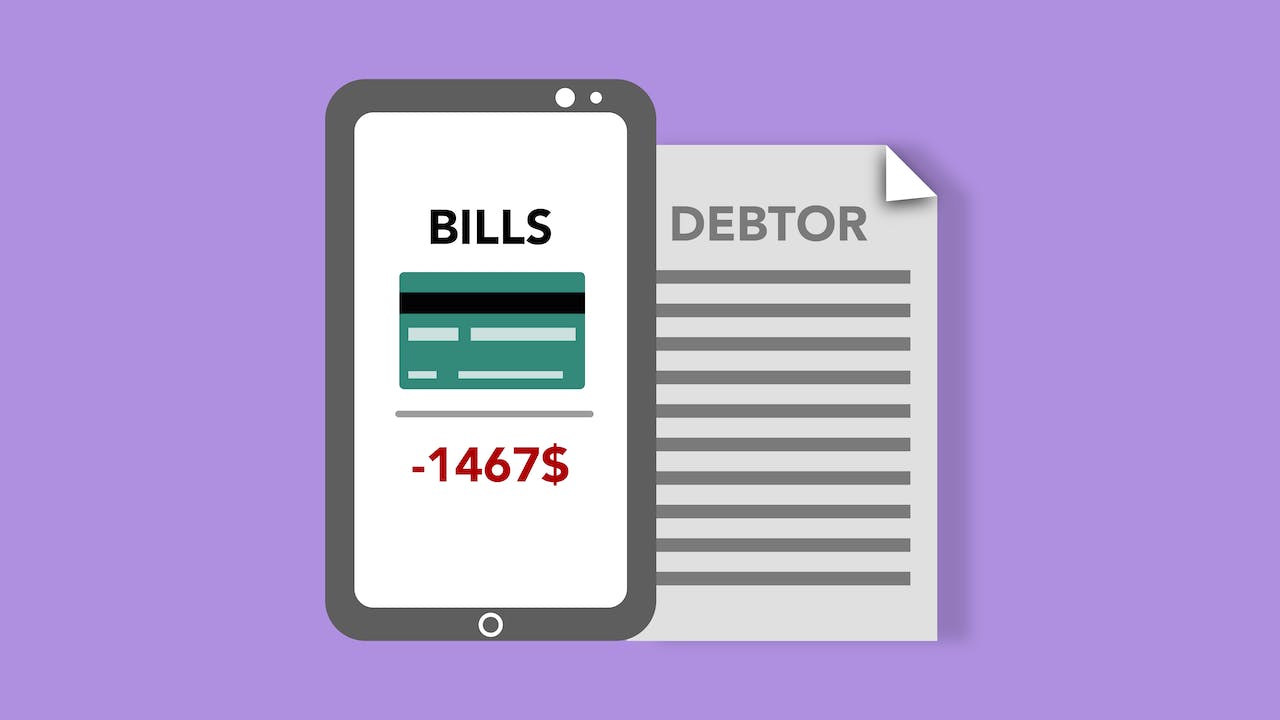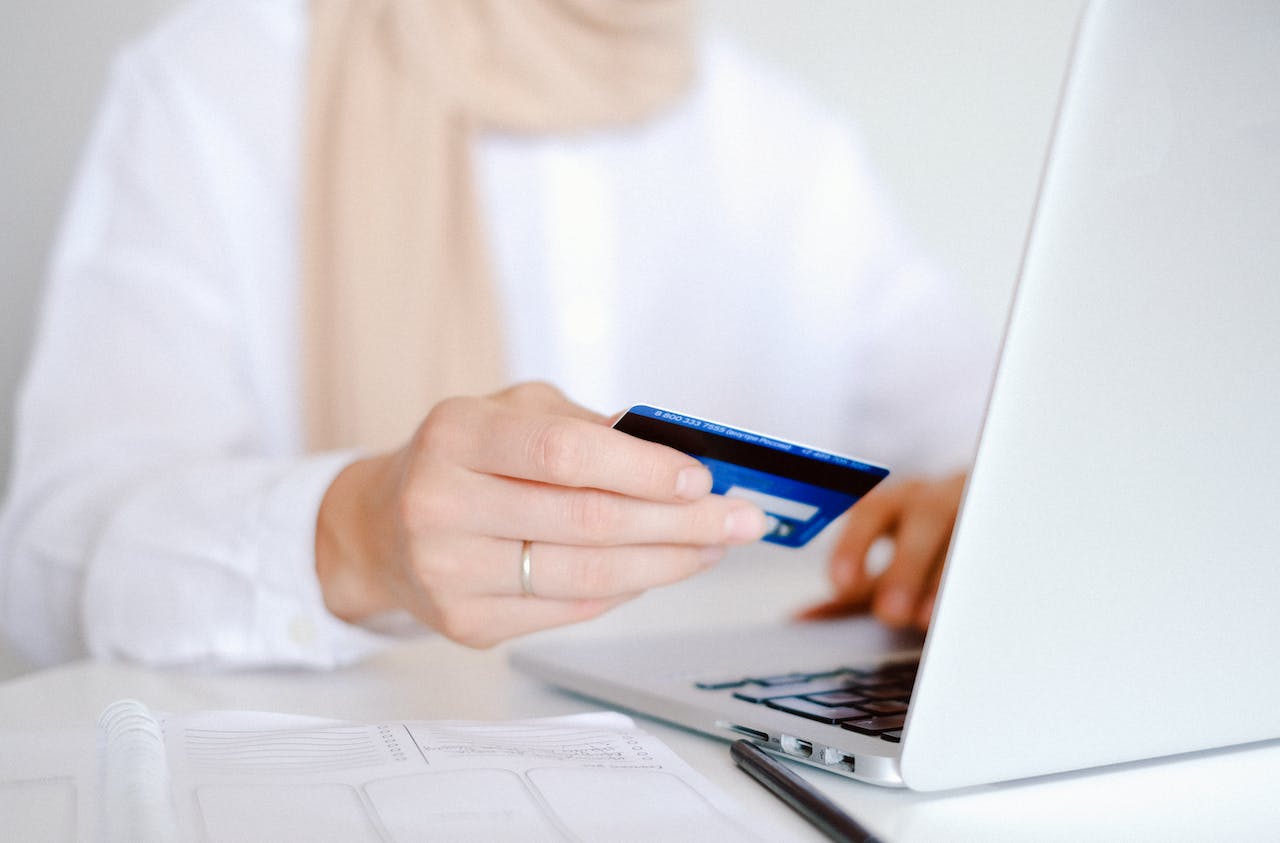
In a time when technology is advancing at an accelerating rate, the way we handle our money has changed significantly. Online banks are a new wave of financial institutions that have joined, and in many cases replaced, traditional brick-and-mortar banks.
These digitally-focused banks provide a simplified and practical approach to banking, with lower costs, round-the-clock accessibility, and an abundance of digital tools to assist with money management.
But with this seismic shift in the banking landscape comes an important question: Should you use an online bank? This is a financial decision that may significantly affect your everyday life and long-term financial objectives; it is not just a question of personal taste.
To help you navigate this crucial decision, this article delves deep into the world of online banking. We'll go over the benefits of switching to an online bank, including its unmatched ease and financial rewards.
On the other hand, we will also discuss the possible risks and disadvantages of putting your financialsecurity in the hands of the digital world, such as security issues, a lack of in-person services, and technological needs.
What Is An Online Bank?
A bank that primarily provides services online is known as an online bank. Online banks can cut costs by eliminating the usual overhead associated with running a branch office. Online banks may now provide competitive yearly percentage rates that are significantly higher than the national average.
Almost half (40%) of online banks offer savings rates of 4 percent APY or greater, according to the Online Savings Survey, which is nearly 20 times higher than the national average of 0.23 percent.
You can contact an online bank via email, a mobile app, online chat on the bank's website, or by phoning the customer care number instead of speaking with bank tellers and bank workers.
Pros Of Online Banks
Even while traditional banks are becoming more and more virtual, customers may still benefit from certain distinct benefits provided by online-only competitors.
Better Rates, Lower Fees
Direct banks are able to provide more excellent interest rates or annual percentage yields (APYs) on savings because they do not have to incur extensive administration or infrastructure expenditures. The best ones may provide you with up to 1% or 2% more than typical bank accounts, which can add up quickly if you have a large sum.
Although a small number of direct banks with exceptionally high annual percentage yields (APYs) provide savings accounts, the majority also provide certificates of deposit (CDs), high-yield savings accounts, and CDs with no early withdrawal penalties.
At a direct bank, you're less likely to be hit with a variety of fees, such as those related to maintaining an account open with a bit of balance, making direct deposits, or making payments using a debit card or check. Direct bank accounts are more likely to have no service fees and no minimum balance requirements.
Better Online Experiences
Conventional banks are making significant investments to enhance their online presence and offerings, which include developing apps and modernizing websites. However, direct banks seem to have an advantage when it comes to Internet banking generally.
High-Yield Savings Accounts
Online banks do not incur the infrastructure and overhead expenses of traditional brick-and-mortar banks. Because of this, compared to physical banks, internet savings accounts usually give better rates on cash deposits.
For instance, some of the most outstanding online savings accounts as of December 2020 offered APY rates ranging from 0.40% to 0.81% APY.
Make careful to compare many internet savings accounts before selecting one. Only some online banks can provide the same account features. For example, some of the highest-yielding accounts might not allow you to have an ATM or debit card linked to your account.
To be eligible for the most remarkable APY rate, you must also ensure that you are aware of the guidelines and conditions pertaining to your account. Certain high-yield savings accounts include requirements such as a more significant initial deposit to start the account, a minimum amount must be kept in the account, or a monthly automatic deposit.
Multiple Banking Products
Many people choose to open an online bank account in order to achieve particular financial objectives, such as increasing the rate on their savings accounts. It's OK to concentrate only on one area of Internet banking while keeping the remainder of your funds in a traditional brick-and-mortar bank.
However, a more excellent range of financial services and products are being offered by several internet banks.
You should not think that online banking is just for savings accounts. Checking accounts, ATM or debit cards, certificates of deposit, money market accounts, credit cards, currency transactions, loans, and other financial services are among the additional services that some of the most significant online banks are beginning to provide.
Access Your Account 24/7
The ability to access your account from anywhere at any time is one of the main benefits of online banking. You can check your accounts online as long as you have an internet connection, which means you won't have to worry about leaving your house when it's inconvenient or about doing it while on vacation or shopping.
Cons Of Internet Banks
There are disadvantages and annoyances associated with banking online.
No Personal Relationships
You can get to know the employees at your local branch of a traditional bank. That might be advantageous if and when you require more financial services, like a loan, or if you need to adjust your banking setup.
In the event that your circumstances change, a bank manager often has the authority to modify the conditions of your account or to reverse any required fees or service charges.
Less Flexibility With Transactions
Meeting with a banking employee face-to-face is about more than just getting to know you and your financial situation. Sometimes, going to a bank branch is the best option for some transactions and issues.
Consider making a deposit, which is the most fundamental type of financial transaction. With a direct bank, you may deposit a check simply by taking a picture of the front and back of the check using their banking app.
However, a lot of internet banks make cash deposits extremely difficult. Therefore, if you anticipate doing this on a regular basis, review the bank's policies. With certain direct banks, international transactions might potentially be more challenging or even impossible.
The Absence Of Their ATMs
Online banks rely on consumers using one or more ATM networks, including those from AllPoint and Cirrus, as they do not own their banking machines. It's worthwhile to verify the machines that are accessible close to your place of employment and residence, even though these systems provide access to tens of thousands of machines across the nation and even beyond.
Also, look for any costs you could accrue from using the ATM. There are occasional restrictions on the number of complimentary ATM transactions you may do in a given month, even though many direct banks provide free access to network ATMs or will reimburse any monthly fees you spend.
More Limited Services
Direct banks might only provide some of the extensive financial services that regular banks provide, including brokerage accounts and insurance. Loyal customers of traditional banks may occasionally be eligible for unique benefits like preferred rates and free investment advice.
Furthermore, standard services like bank signature verification and notarization are not offered online. Numerous legal and financial operations need these services.
What Measures Do Online Banks Take To Protect Your Money?
When it comes to protecting your money, internet banks, just like traditional banks, implement a variety of security methods. The measures that they take to ensure the safety of your account are not unique to any one financial institution that provides online banking services.
FDIC Insurance
The Federal Deposit Insurance Corporation (FDIC) provides insurance coverage for the majority of banks. Deposits up to $250,000 per depositor and per ownership type in each bank are protected by the Federal Deposit Insurance Corporation (FDIC).
FDIC insurance ensures that your savings are safeguarded up to the limits of the deposit insurance policy in the event that your bank fails.
Transcription Of Data
Strong internet encryption is utilized by both online and traditional banks, as directed by the federal government. This encryption prohibits any third party other than your bank from seeing your data, which includes your card numbers and similar information.
Multi-Factor Authentication
You will be required to go through many authentication steps before being granted access to your account if you are using multi-factor or two-factor authentication.
As an illustration, rather than only forcing you to key in your password, your financial institution could also need you to respond to a security question or enter a personal identification number (PIN) that is sent to your phone or email inbox.
Automatic Sign-Out
There are a lot of online banks that employ time-out or automated sign-out. Additionally, if you use the mobile app or website of your bank and do not log out when you are finished using it, you will be automatically logged out after a certain amount of time has passed. Because of this, other individuals can't access your account on your device without first logging in for themselves.
Fraud Monitoring
Several online banks have security monitoring in place to detect fraudulent activity as promptly as possible in the event that someone hacks into your bank account or obtains your debit or credit card information.
Your bank may get in touch with you if they observe any strange activity on your account; nevertheless, you will not be held responsible for any transactions that were not permitted.
How Do You Know If An Online Bank Is Legitimate?
Consider creating a bank account online, such as a checking account. To be sure you're dealing with a reputable company, follow these steps.
Check Out Its Website And Customer Reviews
Examine the bank's website to see if anything appears strange. Check the "About Us" page for glaring mistakes, such as many misspellings. That's not good, as the website was put up quickly.
Try searching for customer reviews of the bank on Google. Avoid the bank if you can't discover any reviews or if the majority of them label it as a fraud.
Verify It's FDIC-insured
The "FDIC insured" sign is often located at the bottom of reputable banks' websites. However, there are other ways to verify a bank's legitimacy.
To find out if an online bank has FDIC protection, use the FDIC's BankFind service. You have the option to search by web URL, FDIC certificate number, or bank name. Be cautious if you are still looking for something on your bank here.
One thing to keep in mind is that the two organizations may use the same FDIC certificate number if you're dealing with an online bank that links with a traditional bank. If so, you should find out these facts from the partner bank.
Look Into The Security Measures The Online Bank Takes To Protect Your Money
The majority of banks feature a page explaining how they safeguard their clients' funds on their websites; moreover, if you are still looking for something comparable, you can contact the bank directly by phone or email. Additionally, enquire about two-factor authentication.
Make sure the bank's URL starts with "https" rather than "http." The additional "s" denotes that the website's data is encrypted and difficult to steal.
How Do You Keep Your Money Safe When Banking Online?
These days, most banks provide digital services. Although banks take reasonable security measures, it is always your responsibility to secure your personal information. The following advice will assist you in doing it using mobile banking applications or the Internet;
- Always enter your bank's web URL into your browser. Links provided to you by text or email should not be clicked. Most likely, this is a hoax. Make sure to bookmark the page for convenient access.
- On a public wifi network, never place a bet. This is how hackers get into your bank accounts. Hold off and utilize a private, password-protected network until you reach home.
- Please select a secure password, then alter it on a regular basis. It would help if you used a combination of capital and lowercase characters, numbers, and symbols in your password. Never put it in writing. It may be misplaced or taken.
- Make use of two-factor authentication. Establish two-factor authentication even if your bank does not mandate it. Although doing the extra step causes a little more inconvenience, it's one of the most robust defenses against account hacking.
- Configure notifications for activities. You can set up account alerts for questionable account activity with many online banks. This can assist you in apprehending identity thieves as soon as possible before they deplete your account.
Is An Online Bank Right For You?
While fully online banking might make certain banking services more challenging, such as cash deposits, having at least a portion of one's financial portfolio with an online bank can simplify and offer additional benefits to money management.
High-yield checking accounts, offered by certain online banks, offer competitive returns, no maintenance fees, free checks, and access to a vast network of ATMs.
If you want to keep your rainy-day fund and your spending money separate, an online bank might be an excellent way to start and grow your emergency fund. You may be less likely to transfer or withdraw that money if it is not visible to you in the exact location of your checking account.
When you adhere to FDIC requirements and regulations, internet banks with FDIC insurance offer competitive annual percentage yields and safeguard your funds.
Consider considering opening numerous accounts with various kinds of organizations if you wish to benefit from the capabilities of online banks with some branch access. For instance, maintain a high-yield savings account with an internet bank and a savings account at a physical bank.
Challenger banks, also known as neobanks, offer options for customers interested in the fintech space. Although these organizations are primarily digital, occasionally even mobile-only, they provide financial services such as savings accounts and debit cards and are not legally banks. They could also be in favor of particular social causes.
Growth Of Online Banking In The Future
The future of online banking is poised for exponential growth, driven by technological advancements and changing consumer behaviors. Over 2 billion individuals use online banking globally, a number projected to surge significantly in the coming years.
This growth is fueled by the increasing penetration of smartphones and internet access, especially in developing countries. By 2025, it's estimated that nearly 65% of banking transactions will be digital.
The integration of artificial intelligence and machine learning in online banking is revolutionizing the way financial services are delivered. These technologies enable personalized banking experiences, enhanced security measures, and more efficient handling of customer inquiries and transactions. Furthermore, the rise of blockchain technology promises to make online banking more secure and transparent.
According to Statista, the net interest income in the digital banks market is projected to reach US$650.3 billion in 2023, with an expected annual growth rate of 13.39%.
Furthermore, it is projected that by 2024, the number of online banking users will exceed 3.6 billion, and the number of digital banking users in the United States is expected to reach 216.8 million by 2025.
Frequently Asked Questions
What Are The Security Concerns Associated With Online Banks?
Data breaches and fraud risks require users to practice online solid security.
Who Might Benefit From Using An Online Bank?
Tech-savvy individuals, frequent travelers, and those seeking cost-effective banking.
Who Should Exercise Caution When Considering Online Banking?
Individuals with complex financial needs, elderly individuals with limited tech skills, and those valuing personal customer service.
Final Thoughts
The question, "Should you use an online bank?" hinges on your unique financial circumstances and preferences. Online banks offer unparalleled convenience, lower fees, and innovative digital tools, making them an excellent choice for tech-savvy individuals seeking flexibility and cost savings.
However, they may need to be more suitable for those with complex financial needs, a preference for in-person services, or concerns about cybersecurity. The decision to use an online bank should be based on careful consideration of your requirements. So, before you embrace the digital revolution in banking, evaluate your priorities, compare options, and determine if an online bank aligns with your financial goals and lifestyle.



